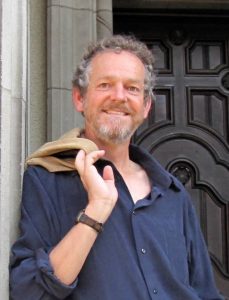 “Theology and the Church After Google: How This New Age Will Change Christianity” is both an article about how theology is shifting and must continue to change as well as an example of such change. It is written by an academic (Philip Clayton, Professor of Religion and Philosophy at Claremont Graduate University and Ingraham Professor at Claremont School of Theology) and was published in an academic journal (The Princeton Theological Review), however, it now appears online in its entirety (The Progressive Christian) and is accessible to everyone.
“Theology and the Church After Google: How This New Age Will Change Christianity” is both an article about how theology is shifting and must continue to change as well as an example of such change. It is written by an academic (Philip Clayton, Professor of Religion and Philosophy at Claremont Graduate University and Ingraham Professor at Claremont School of Theology) and was published in an academic journal (The Princeton Theological Review), however, it now appears online in its entirety (The Progressive Christian) and is accessible to everyone.
Clayton argues that theology must change “radically if it’s going to communicate effectively with Gen-Xers, Millennials, and the increasingly large group of non-religious Americans (“non’s”) over the coming 10-20 years.” The newly emerging theology can no longer be confined to issues of interest only in the academy; it must have a more pragmatic or parish-centered basis. Specifically:
Theology after Google devotes itself to the questions that all Christians ask and the kinds of answers that ordinary people give, no matter how hesitating and uncertain. This new definition has a wonderful implication: Theology is tightly bound to whatever and wherever the church is at a given time. Theology is about what the church is and is becoming now. So “theology after Google” asks: What must the church become in a Google-shaped world?
So What?
In an attempt to summarize what his essay means, Clayton offers five theses:
- Theology is not something you consume, but something you produce. In the Age of Gutenberg, you read theology in a book; you heard it preached in sermons; and you were taught it by Bible teachers. In the Age of Google, theology is what you do when you’re responding to blogs, contributing to a Wiki doc or Google doc online (or on your own computer), participating in worship, inventing new forms of ministry, or talking about God with your friends in a pub.
- No institutions, and very few persons, function as authorities for theology after Google. Ever since Jesus’ (often misunderstood) statement about Peter that “on this rock I will build my church” (Mt. 16), the church has had issues with authority. . .
- Theology after Google is not centralized and localized. Likewise, the church cannot be localized in a single building. We find church wherever we find Jesus-followers that we link up with who are doing cool things. This point is huge. Denominational officials and many pastors have not even begun to conceive and wrestle with what it means to work for a church without a clear geographical location.
- Similarly, theology after Google does not divide up the world between the “sacred” and the “secular,” as past theologies so often did. All thought and experience bears on it, and all of one’s life manifests it. Thus the distinction between one’s “ministry” and one’s “ordinary life” is bogus. All of one’s life as a Christian is missional. . .
- The new Christian leader is a host, not an authority who dispenses settled truths, wise words, and the sole path to salvation. . .
Review Clayton’s five theses:
- How have you experienced this Copernican revolution in theology to date? How well do you feel your local church is handling it? Your denomination?
- Looking ahead ten years what are its implications for your local church? How might it look and function differently when compared to today?
- What do you see as the greatest strength of this “new age” of Christianity? its greatest limitation?